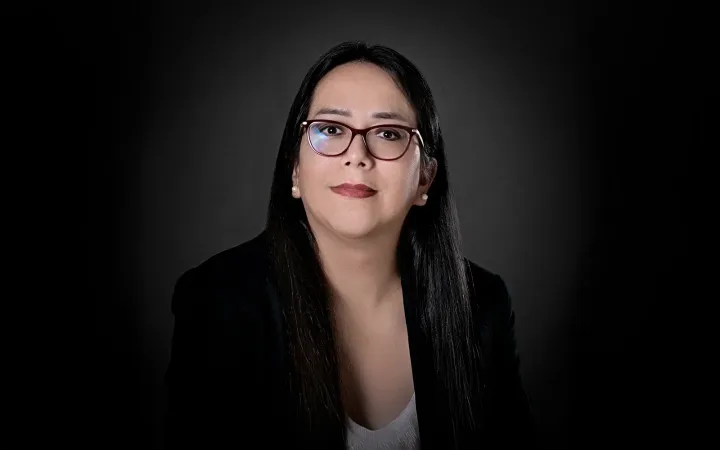By Adela Navarro Bello
It was during the six-year term of Felipe Calderón Hinojosa when the supervision, control and evaluation apparatus for Mexico's police forces was established. In a climate of growing insecurity and violence, overwhelmed by the presence of drug cartels in many of the states, many of the local, municipal, state and federal police forces with a regional presence were heavily infiltrated by drug trafficking.
Police officers, commanders, agents, operatives, intelligence agents and others were on the cartels' payrolls and were the ones who provided sensitive location information to drug lords and cell lieutenants, so that they could flee in time and maintain the impunity that still prevails today in different scenarios of criminality and corruption.
In the second six-year PAN administration in Mexico, they came to the conclusion that, in order to fight the drug cartels in an adequate and direct manner, the first thing they had to do was to purge the local corporations. Eradicate corrupt ties between police and criminals by identifying those who had them in order to separate or neutralize them in the prevention, investigation, combat and ministerial corporations.
It was with this official reasoning that, even without changing the laws, the Mexican Army was entrusted for the first time with the tasks of the civil police: preventing crime, combating drug trafficking, apprehending criminals.
The premise was that this measure was the result of the emergency of not abandoning security tasks, while the police forces of the three levels of government were undergoing a purge. Thus, the Control and Confidence Evaluations were established, to be carried out by the federal Security Secretariat, then headed by Genaro García Luna, now imprisoned for drug trafficking, and in the respective agencies in the states.
These exams, which over time have been consolidated and today must be passed in order to join any civilian security force, be it the National Guard, Ministerial, Judicial or Municipal Police and even their commanders, whether they are of military or civilian origin, include five areas of evaluation: medical, toxicological and psychological exams, polygraph tests, analysis of the social environment and of the patrimonial situation.
With the application of these five studies, the authority aims to identify people who are fully capable of fighting crime, and also those who, outside the ranks, have been detected to be inclined to commit crimes, because they have already had mafia or corrupt relationships that are detected in the polygraph, because they are not trained or, it is evident, given their financial situation, not in accordance with the official salary of a police officer, that they receive outside money for their personal development or because they have relationships with criminal groups.
Although the application of these exams persists,in Calderón's six-year term they failed to eradicate corruption in federal and local civilian corporations, and in Enrique Peña Nieto's term, that emergency situation was relaxed, and even when the military was returned to the barracks and security was returned to the states, corruptionwas still there, so much so that when Andrés ManuelLópez Obrador took office, one of his first actions was to grant more power tothe military,in whom he blindly trusted, to make the military morecorrupt , corruption was still there, to such a degree that when Andrés Manuel López Obrador took office as President of Mexico, one of his first actions was to grant more power to the military, in which he blindly trusted, to fight insecurity. He dismantled until eradicating the Federal Police, certainly one of the most corrupt in recent history, and created the National Guard, with soldiers among its thousands of members; at the same time, in the states where he was able to do so as his party won state elections, he imposed the Security Secretaries and in some cases the state prosecutors (he would also give them autonomy), with high commanders of the Army either already retired or commissioned for that purpose.
This policy also persists, and with a law that gave them the power to perform tasks that previously corresponded to states, municipalities and civilian corporations, little by little the military has been settling in the security areas in the states, but not to coordinate efforts, but to impose policies.
A few days ago, in one of the smallest municipalities in Baja California, Tecate, with a high rate of insecurity and violence, the General assigned as Secretary of Citizen Security of the State, Leopoldo Aguilar Durán, relieved the entire Municipal Police.
Under the pretext of certifying them, that is, subjecting them to Control, Evaluation and Confidence Tests that are now conducted by the State Attorney General's Office and not by the Secretariat of Security, as when the process began in the Calderon administration (at least in Baja California), the municipal officers were removed from their preventive duties and their places were taken by police officers from the State Citizen Security Force (FESC), the notorious FESC, by the way, who together with the Army headed the operation to detain the notorious drug trafficker Pablo Edwin Huerta Nuño alias El Flaquito, of the Arellano Felix organization, who ZETA reported, bribed the forces that were supposed to detain him with 300 thousand dollars to flee again and maintain, as until now, impunity.
This is not the first time that in these Morena governments in Baja California, General Aguilar has relieved municipal police officers; he already did it once in the Mexicali Valley, where insecurity did not decrease and has not decreased with such state occupation.
In spite of not having satisfactory results to continue with the replacement of municipal police officers by state agents, the measure continues to be applied. When the Control, Evaluation and Confidence Tests are a measure that is systematically applied to all agents of any corporation in the country, that is to say, it is not a pretext to apply them to an entire corporation at the same time, when if the Law and the calendar are complied with, the elements are constantly evaluated precisely to be in a continuous verification and to avoid their participation in crime.
The takeover of municipal corporations, as is happening in Baja California, and the appointment of military or marines as heads of security in municipalities and states, as occurs in those entities governed by Morena politicians (the vast majority), seems more an act of subordination of the local authority to the military, than a public policy of coordination to combat organized crime and drug trafficking among all forces.
The proof is that, to date, there are no positive results in the criminalized reality of Mexico.

The opinions expressed are the responsibility of the authors and are absolutely independent of the position and editorial line of the company. Opinion 51.






Comments ()